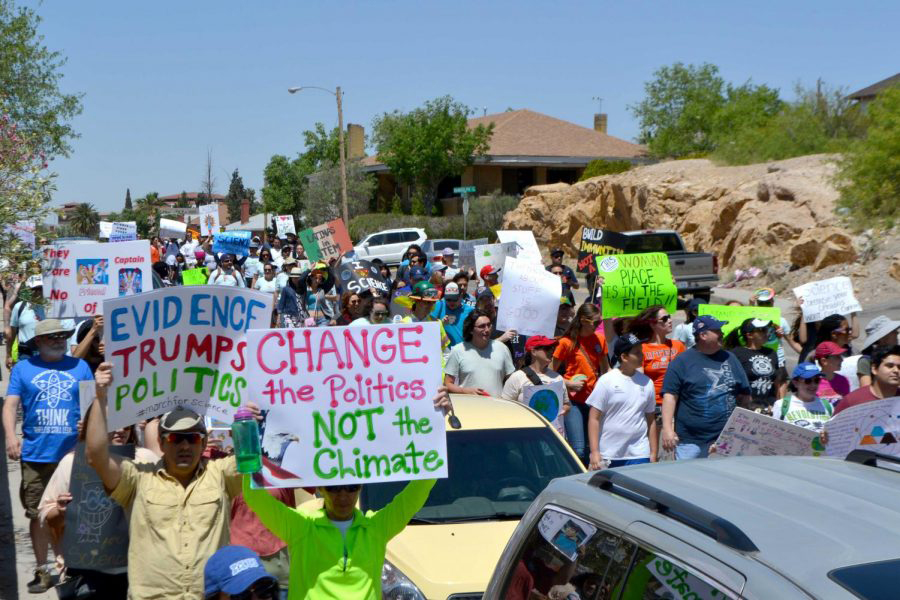Climate change is a topic of discussion for many across the world, giving birth to high profile activists like Greta Thunberg and local groups like Frontera Water Protectors Alliance (FWPA).
“There is so much evidence of the harm that we are doing to the planet and we need to do something to correct it,” said Cristian Colmenero, a 24-year-old UTEP digital media student.
For Crystal Moran, co-founder of FWPA, climate change is not an opinion but rather an undisputable fact that calls for environmental protections.
“Everyone needs to understand that our literal lives and children’s future are being threatened by the climate crisis,” Moran said.
FWPA was founded in 2016 by Moran and local activist Cemelli de Aztlan to rally in solidarity with the Standing Rock protesters, who demonstrated against the Dakota Access Pipeline. Protesters rallied against the Energy Transfer Partners’ pipeline, which runs through the Standing Rock Indian Reservation, to stand for the protection of water, land and indigenous people’s sacred sites.
The alliance consists of individuals who identify as indigenous and other allies who are passionate about environmental preservation and the protection of water supply from oil and gas industries.
Moran organized a “sunrise water ceremony” in San Elizario, Texas, where the federally approved project “San Elizario Crossing Project” is expected to take place.
The proposed project aims to construct and install a pipeline that would run beneath the Rio Grande River near San Elizario.
When the project was announced in 2016, many protesters including groups like FWPA were concerned that the construction of the pipeline would contaminate the water supply for El Paso County and its surrounding areas.
Other major concerns for FWPA include Marathon Refinery, fracking in Hueco Tanks and the open-pit copper mine of Samalayuca, Mexico.
According to Moran, Marathon Refinery applied for a permit that would allow it to freely emit contaminants such as carbon monoxide, hydrogen cyanide and hydrogen sulfide into the air.
“Hydrogen Cyanide creates cell death by essentially cell suffocation. It affects mostly respiratory systems, therefore, it’s very dangerous for adults and children who already have respiratory illnesses, such as asthma,” Moran said.
Hueco Tanks is considered a sacred place by several American Indian tribes due to its ancient pictographs, a sacred place that’s been subject to fracking which puts everyone’s health at risk, according to Moran.
“Fracking outside of Hueco Tanks is very near to our groundwater aquifers that provide drinking water for El Paso and surrounding cities,” Moran said. “This will contaminate our water with the dangerous chemicals used in the fracking process.”
Canadian company, VVC Exploration Corporation, recently submitted paperwork to federal Mexican environmental authorities to open a copper mine in the city of Samalayuca, Mexico, which is 35 miles away from El Paso.
Although the project claims to bring thousands of jobs to Samalayuca, environmentalists and allies still do not support the project.
“This project will further contaminate our water, air and land of this region with volatile compounds used in the copper extraction process,” Moran said.
While FWPA continues fighting for the environment, Moran encourages anyone with an interest in environmental advocacy to join her team.
“We desire to make huge impact and change in our El Paso community and the state towards a more sustainable future and to have in place a 100% renewable energy infrastructure program for our community as soon as possible,” Moran said.
Paulina Astrid Spencer may be reached at [email protected]











